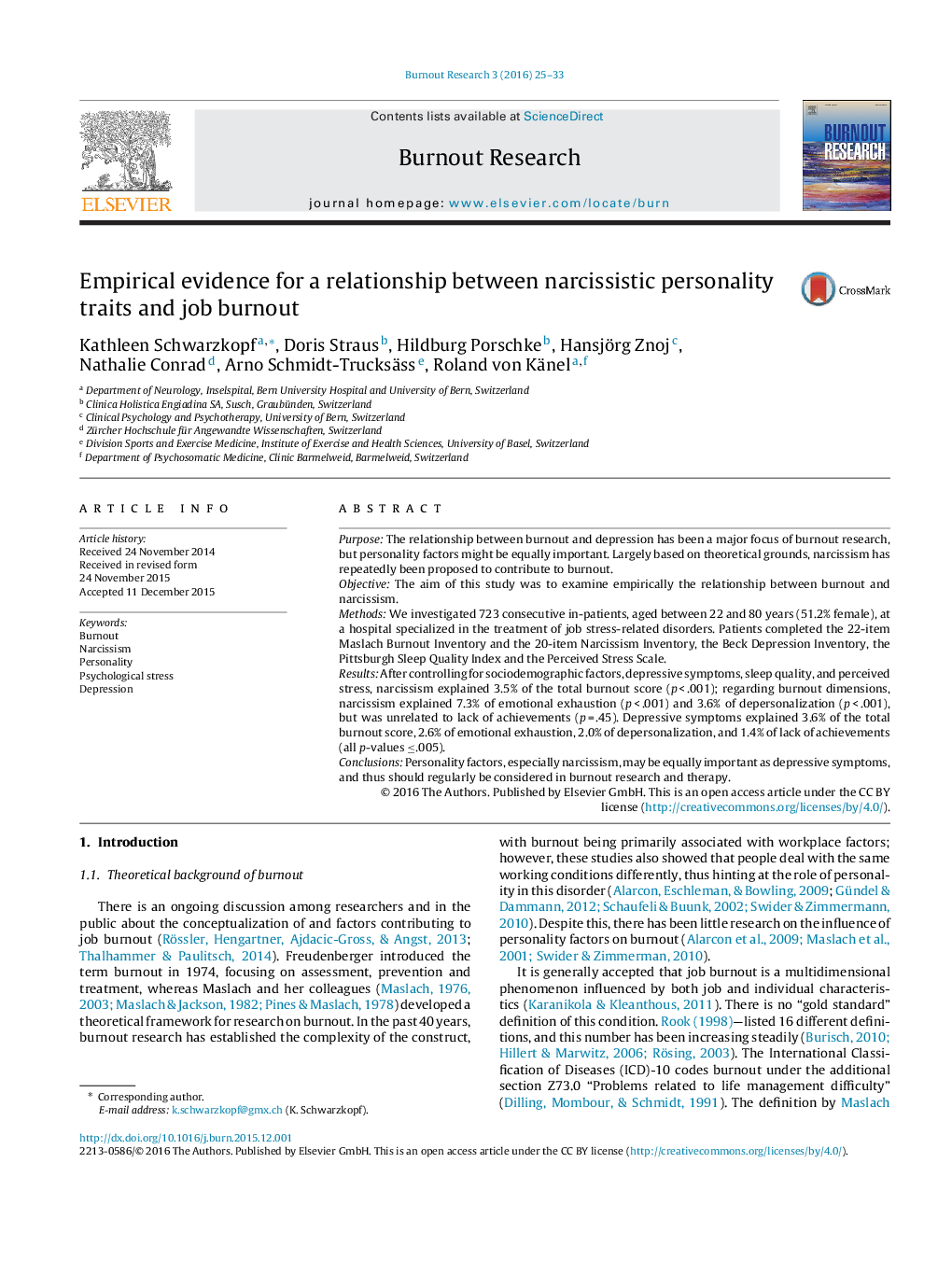| Article ID | Journal | Published Year | Pages | File Type |
|---|---|---|---|---|
| 317830 | Burnout Research | 2016 | 9 Pages |
•Narcissism was positively related to job burnout, particularly to the dimensions of emotional exhaustion and depersonalization.•Narcissism explained similar variance in burnout as depressive symptoms.•Treating narcissism might play an important role in the prevention and treatment of burnout.
PurposeThe relationship between burnout and depression has been a major focus of burnout research, but personality factors might be equally important. Largely based on theoretical grounds, narcissism has repeatedly been proposed to contribute to burnout.ObjectiveThe aim of this study was to examine empirically the relationship between burnout and narcissism.MethodsWe investigated 723 consecutive in-patients, aged between 22 and 80 years (51.2% female), at a hospital specialized in the treatment of job stress-related disorders. Patients completed the 22-item Maslach Burnout Inventory and the 20-item Narcissism Inventory, the Beck Depression Inventory, the Pittsburgh Sleep Quality Index and the Perceived Stress Scale.ResultsAfter controlling for sociodemographic factors, depressive symptoms, sleep quality, and perceived stress, narcissism explained 3.5% of the total burnout score (p < .001); regarding burnout dimensions, narcissism explained 7.3% of emotional exhaustion (p < .001) and 3.6% of depersonalization (p < .001), but was unrelated to lack of achievements (p = .45). Depressive symptoms explained 3.6% of the total burnout score, 2.6% of emotional exhaustion, 2.0% of depersonalization, and 1.4% of lack of achievements (all p-values ≤.005).ConclusionsPersonality factors, especially narcissism, may be equally important as depressive symptoms, and thus should regularly be considered in burnout research and therapy.
